As an AI Strategy Consultant with over two decades of experience guiding businesses through digital transformation, I’ve witnessed firsthand how artificial intelligence has evolved from a nebulous concept to a practical business tool. While “AI” might sound like something reserved for tech giants, it’s transforming small businesses just like yours every day.
In this guide, I’ll break down AI into simple, actionable steps that any small business can use to boost efficiency, improve customer service, and increase profitability. By the end, you’ll not only understand where to start with AI but also have a concrete plan to make it work for your business.
Why AI is More Than Just Hype for Small Businesses
Let’s cut through the buzzwords and focus on what AI can actually do for your bottom line. After helping hundreds of small businesses implement AI solutions, I’ve seen three consistent benefits:
- Increased Productivity: By automating routine tasks, your team can focus on what matters most – growing your business and serving customers.
- Improved Customer Satisfaction: AI enables personalized service at scale, making each customer feel valued without overwhelming your staff.
- Smarter Decision-Making: Access to real-time insights helps you spot trends and opportunities before your competitors.
Take Sarah, a client who owns a local boutique in Portland. By implementing a simple AI-powered inventory management system, she reduced stockouts by 60% and increased customer satisfaction scores by 35% in just three months. The system cost her less than hiring a part-time employee but delivered round-the-clock results.
Assessing Your Business’s AI Readiness
Before diving in, let’s determine if AI is right for your business. Ask yourself these questions:
- Do you spend hours on repetitive tasks like data entry or scheduling?
- Are you struggling to understand what your customers want?
- Would having predictions about busy periods or inventory needs help you plan better?
- Is your customer service team overwhelmed with basic inquiries?
If you answered “yes” to any of these questions, AI could significantly improve your operations. In my experience, most small businesses answer yes to at least two of these questions, indicating clear opportunities for AI implementation.
Identifying Key AI Opportunities in Small Business Operations
After analyzing hundreds of small business transformations, I’ve identified four areas where AI consistently delivers the highest ROI:
Customer Service
Implement AI chatbots to handle common questions 24/7. One of my clients, a small online retailer, reduced response times from hours to seconds while cutting customer service costs by 40%.
Sales & Marketing
Use AI-driven email marketing to send personalized recommendations based on customer behavior. A local gym client increased member retention by 25% using this approach.
Operations
Deploy smart inventory management systems to predict demand and reduce waste. I’ve seen restaurants cut food waste by up to 30% using AI forecasting.
Data Analytics
Leverage AI tools to understand customer patterns and optimize pricing. A boutique hotel client increased revenue by 15% after implementing AI-powered dynamic pricing.
Pro Tip: Start with just one area where you face the most significant challenges. Success in one area often creates momentum for broader adoption.
Few Free AI Tools Available for UK Small Businesses
As an AI strategist who’s worked extensively in the UK market, I’m often asked about cost-effective solutions. The good news is that many powerful AI tools offer robust free tiers that are perfect for small businesses getting started:
Customer Service & Communication
- Google Bard: Free AI chatbot that can help draft responses and handle basic customer queries
- ChatGPT: OpenAI’s free version can help with customer service scripts and basic content creation
- Tawk.to: Completely free live chat software with basic AI capabilities for website integration
Marketing & Content
- Canva’s Free AI Tools: Includes Magic Write for content generation and other AI design features
- HubSpot Free CRM: Includes AI-powered email marketing tools and customer insights
- MailerLite Free Plan: Offers AI-powered email subject line optimization and basic automation
Operations & Productivity
- Trello Free: Includes AI-powered workflow automation features
- Microsoft Copilot for Microsoft 365: Available free for basic features with Microsoft 365 subscription
- Notion AI: Offers free AI features with their free plan for task management and documentation
Analytics & Insights
- Google Analytics 4: Includes AI-powered insights and predictions at no cost
- Meta Business Suite: Free AI-powered insights for social media performance
- Microsoft Power BI: Free version includes AI-powered data visualization and basic analytics
Pro Tip: Many of these tools offer seamless upgrades to paid versions as your needs grow, making them perfect for testing AI capabilities without initial investment.
Success Story: A London-based boutique recently started with Tawk.to’s free chat solution and Google Analytics 4. Within three months, they were handling 65% of customer queries automatically and gained valuable insights into customer behavior patterns, all without spending a penny on software.
A local coffee shop client started with just Intercom’s basic chatbot, handling 70% of customer queries automatically. This freed up staff to focus on crafting better beverages and creating a welcoming atmosphere, ultimately increasing both sales and customer satisfaction.
Step-by-Step Guide to Building Your First AI Initiative
Step 1: Define Your Objective
Set specific, measurable goals. Instead of “improve customer service,” aim for “reduce response time by 50% within three months.”
Step 2: Choose a Low-Risk Pilot Project
Start small and focused. For example, automate appointment scheduling or basic customer inquiries first.
Step 3: Implement and Measure
Track key metrics before and after implementation. Document everything – successes and failures provide valuable insights for future projects.
Step 4: Scale Gradually
Once you’ve proven success in one area, systematically expand to others. This approach has helped my clients achieve sustainable, long-term results.
The Role of a Trusted AI Strategy Partner
While AI tools are becoming more accessible, having expert guidance can save you time, money, and frustration. A good strategy partner will:
- Assess your specific needs and challenges
- Recommend the most cost-effective solutions
- Help you avoid common implementation pitfalls
- Guide you through change management
- Ensure you maximize ROI on AI investments
Your Next Steps Toward Smarter Business Growth
After 20 years in this field, I can confidently say that AI is no longer optional for small businesses wanting to stay competitive. The key is starting small, measuring success, and growing strategically.
Ready to explore how AI can transform your business? I’m offering free 30-minute AI Strategy Sessions to help you identify the best opportunities for your specific situation. During these sessions, we’ll:
- Assess your current operations
- Identify high-impact AI opportunities
- Create a customized roadmap for implementation
Don’t let the AI revolution pass you by. Book your free strategy session today and take the first step toward transforming your business with AI.

